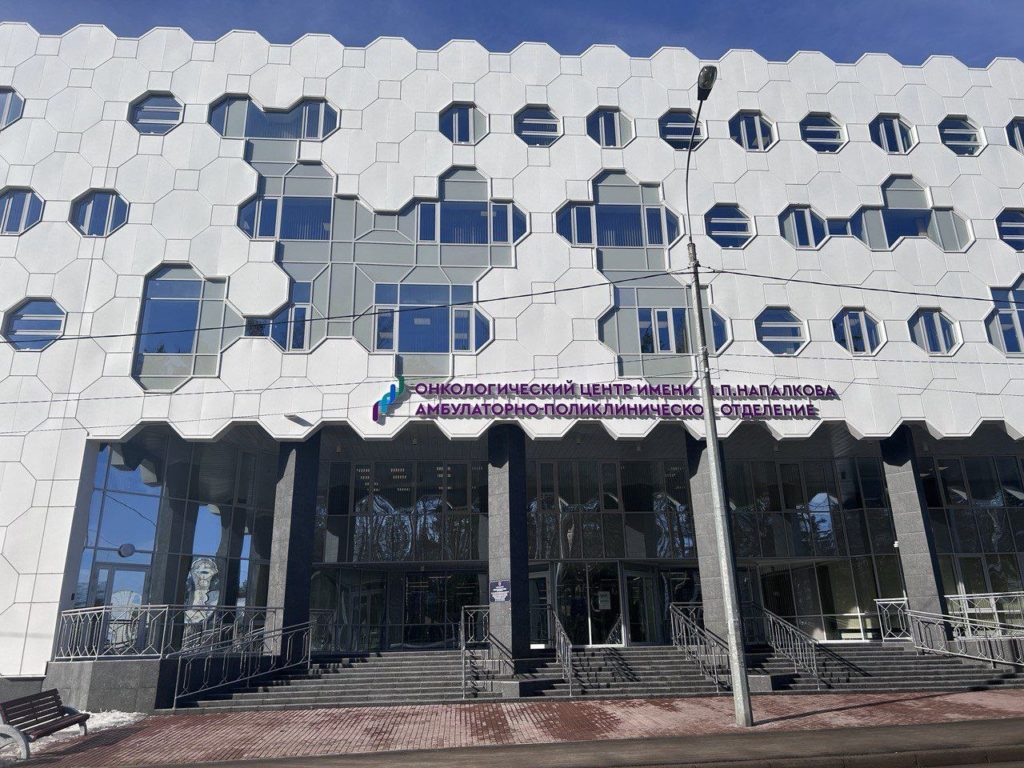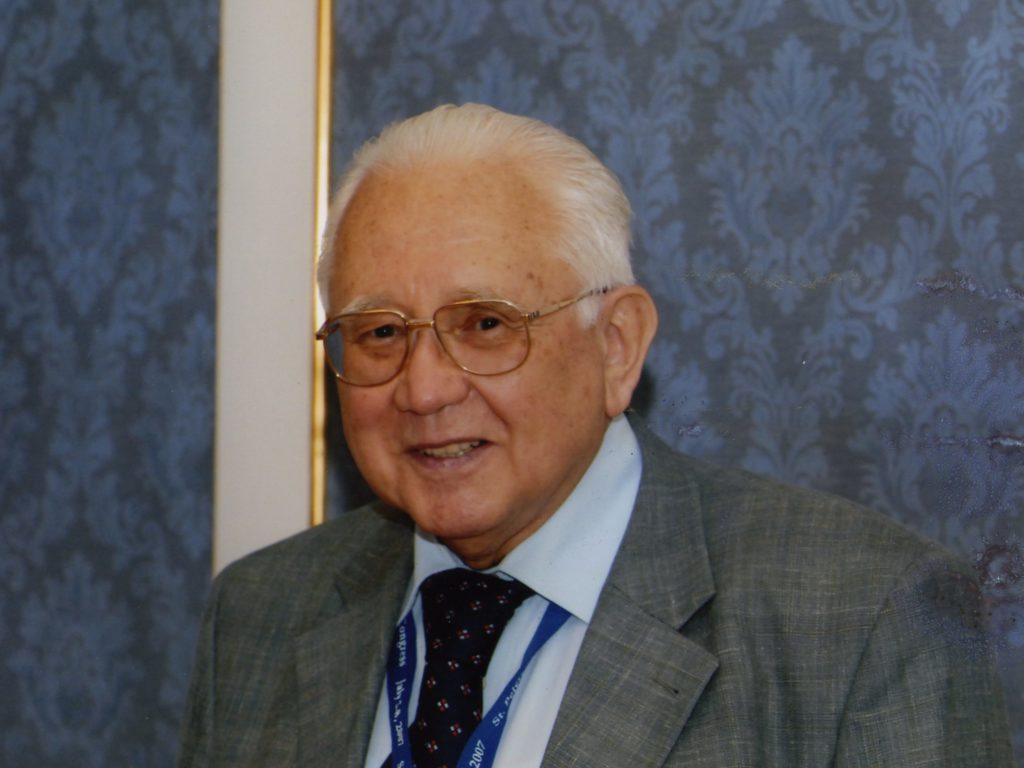
The new building has 5 floors and is connected to the main building by a transitional gallery. The total area is 13,000 sq.m. The department, designed to receive 1,200 visitors per day, houses offices of oncologists and other specialists, small operating rooms, manipulation and treatment rooms, equipment for radiation diagnostics (MRI, mammograph, CT and X-ray).

By the decision of the Health Committee, it is planned to open an Outpatient Cancer Care Center and an Outpatient Surgery Center in the new building. In a day hospital, patients will receive chemotherapy treatment. For this purpose, 9 wards with 57 beds are equipped in the new building. The center will also host a Pain Center, where cancer patients will be taught how to manage pain, and adequate pain management will be selected. In addition, it is planned to open a Center for stomatological patients, for whom specialists of the oncological center will conduct training courses.
The center is particularly proud of the 3 state-of-the-art high-tech operating rooms of MVS, equipped with the latest technology. So-called one-day operations will be performed here to remove skin tumors, install port systems, perform complex biopsies, etc.




In the MVS digital operating room, doctors have access to: the ability to control engineering systems and integrated medical equipment, video recording of operations from all connected video sources, video conferencing anywhere in the world, access to medical archives and video materials, and other functions.
For several years now, there has been a trend in Russian hospitals towards positive and bright interiors that create a friendly and trusting atmosphere in the operating room, provide a favorable emotional state for both the patient and the doctor. The space of the MVS operating rooms is ergonomic, safe, technological and beautiful.

The official opening ceremony of the new building was attended by the Governor of St. Petersburg Alexander Beglov and Vice-Governor Oleg Ergashev.

The history of the N. P. Napalkov cancer Center
The N. P. Napalkov Cancer Center is located in the village of Pesochny, Leningrad region, at 68 Leningradskaya str., lit. A. It is one of the youngest in the structure of urban healthcare. His story is connected with the brightest representative of the Soviet oncological school, Nikolai Pavlovich Napalkov (1932-2008), who was a researcher, founder of the national cancer registry, developer of international programs for the prevention of oncological diseases, Deputy Director General of the World Health Organization. The outstanding scientist dreamed of creating a modern multidisciplinary center in which patients were treated at the most modern level and scientific activities were carried out at the same time.

Nikolai Pavlovich Napalkov was born into a family of hereditary doctors. His grandfather, MD, Professor Nikolai Ivanovich Napalkov, was one of the most famous Russian surgeons. Nikolai Pavlovich Napalkov’s father Pavel Nikolaevich graduated from the medical faculty of the University in Rostov-on-Don and in 1930 moved to Leningrad, where he was invited to work at the Leningrad Hospital named after Mechnikov. In January 1942, he and his wife were sent to the active army as the head of the surgical service of the 54th Army. It was Pavel Nikolaevich who proposed sorting the wounded and placing sanitary units on the front line.
In 1956, Nikolai Pavlovich Napalkov graduated with honors from the Leningrad Sanitary and Hygienic Medical Institute. At the age of 33, he became deputy director of the N. P. Petrov Research Institute of Oncology (located at the same address as the N. V. Napalkov Oncological Center). From the first days of his work at the Institute, Nikolai Pavlovich relies on youth and international cooperation.
In 1960, N. P. Napalkov, together with N. N. Blokhin, took an active part in the organization of the International Agency for Research on Cancer (IARC) in Lyon (France). Later, he headed laboratories in the United States, actively promoting the achievements of Soviet oncology in Western journals, trying to expand the boundaries for new achievements in the fight against an incurable disease at that time – cancer.
In 1971, N. P. Napalkov became the first Soviet representative to the WHO, heading the Department of Oncology. Under his leadership, a national cancer registry was established in Russia.
In 2008, N. P. Napalkov died, and a few years later his brainchild appeared – the N. P. Napalkov oncological center in the village of Pesochny, Leningrad region. Nikolai Pavlovich became the ideologist of this center and would be pleased that his thoughts and aspirations live for the benefit of people.
